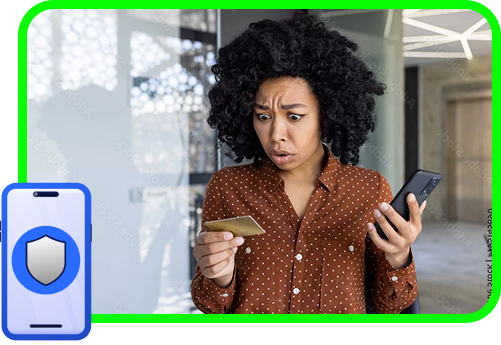Having concerns about a merchant charge to your debit card? See a charge you don't recognize, and you think it may be fraudulent?

Quick and Easy Steps to Address your Concerns:
STEP 1: Review the Charge Details:
You can review transaction details on your account such as the merchant's name, phone number and your past activity with the merchant (if applicable).
STEP 2: Contact the Merchant:
Merchants can resolve charge errors within a few days, where it can sometimes take MyBambu weeks to resolve. Keep track of the date you contact them, who you speak with, and their response. We may ask for these details if you decide to open a dispute later.
STEP 3: Still not resolved? MyBambu’s got you!:
If you have already contacted the merchant and reviewed the charges on your account but are still unable to resolve the issue, the next step is to get in touch with MyBambu.
Call Us: You can reach our Customer Care team at 561-337-1494.
Our team is here to help ensure your concerns are addressed promptly and efficiently!
Merchant Error Charges vs. Unrecognized (Fraudulent) Charges

Merchant Errors
A Merchant Error refers to a transaction you recognize but believe to be incorrect. Common examples include:
- Canceled Recurring Transactions or Subscriptions: Charges for a recurring service or trial subscription you previously canceled.
- Undelivered or Delayed Goods/Services: You were charged for a product or service you never received or that was delivered late.
- Uncredited Returns or Cancellations: A one-time purchase you returned or canceled but have not received the corresponding refund.
- Overcharges: A charge that exceeds the amount listed on your receipt.
- Duplicate or Incorrect Amount Charged: Your card was charged despite paying with cash, another card, or the same card being charged multiple times for the same transaction.
- Incorrect amount dispensed by the ATM: The ATM doesn’t dispense the cash you requested, dispenses the wrong amount, or charges your account even though no money was given.
Unrecognized (Fraudulent) Charges
An unrecognized (fraudulent) charge is a transaction that you did not make and was not made by anyone you authorized to use your MyBambu account. Here’s how to identify and handle it:
- Confirm the Charge Wasn’t Authorized: Verify that neither you nor anyone authorized to use your card made the transaction.
- Review the Transaction Details: Some merchants use different names or addresses for billing purposes. For example, the charge may show the merchant’s headquarters location instead of the store where you made the purchase.
- Report Potential Fraud: If you still don’t recognize the charge and suspect it’s fraudulent, contact us at 1-833-882-2628
- Lost or Stolen Card: If your card is lost, stolen, or you believe someone used your account without permission, call us immediately at 1-833-882-2628
- Act quickly to protect your account and resolve any unauthorized charges.


Scams
What are scams?
While scams come in many forms, their goal is always the same: to steal your money or personal information.
Scammers employ increasingly sophisticated tactics that make it difficult to reverse or cancel fraudulent transactions. Once you’ve sent money to a scammer, getting it back is often impossible. Even worse, if you knowingly participate in a scam, you could face serious legal consequences, including hefty fines and criminal charges.
Here are some common ways scammers pressure you into making payments
Digital Payment Apps: Money transfer apps allow you to send money without needing the recipient’s bank account details. These services work much like sending cash, meaning transactions are often irreversible
Scammers may also attempt to steal your login information, tricking you into revealing access codes so they can sign into your account without your knowledge. Never share your access code, whether it’s to verify an account, request a refund, or for any other reason.
Be cautious of scammers posing as bank representatives who may urge you to transfer money to another account to “protect” your money. Remember, legitimate financial institutions will never ask you to transfer money to yourself or to anyone else for security purposes.
Stay alert and always verify the legitimacy of payment requests before acting.
How can I protect myself from scams?
Watch for warning signs, such as: Too-good-to-be-true offers: If something seems too good to be true, it probably is.
Unexpected messages: Be cautious of calls, texts, social media posts, or emails asking for money, account information, or access to your device.
Don’t send money to strangers: Never send money or share account details with someone you don’t know or a company you can’t verify.
Impersonators: Scammers may pretend to be tech support, government officials, or even MyBambu. Don’t hesitate to end the conversation and take time to check if it’s legitimate.
Avoid payment scams: Double-check payment details: Before using money transfer services, make sure you’re sending money to the correct person. If you send money to a scammer, you may not be able to get it back. (Remember: these types of services are only to be used for money transfer service itself, not to purchase goods or services.)
Avoid refund scams: Don’t send money back to someone who overpaid you for goods or services. It’s likely a scam.
Protect your devices: Don’t let anyone else use your phone or computer. Add extra security to your banking and payment apps.
